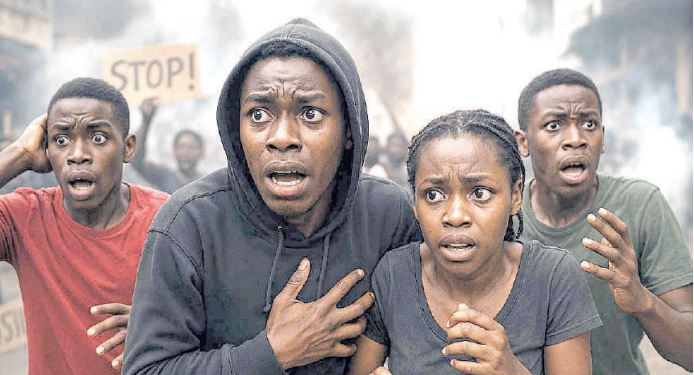
“You are free — as long as you don’t ask the wrong questions. You are safe — as long as you don’t step out of line. You have rights — but only if you can afford to claim them.”
There is an unsettling silence spreading across the country—not the kind that follows peace, but the kind that precedes surrender. In Kenya today, to question power is to gamble with your safety. To protest is to provoke authority. To live with dignity is to hope against institutional gravity. Increasingly, it feels as though being left alone by the state is not a right, but a favour. And this is by design.
Over the past decade, Kenya has slowly transitioned from a noisy, chaotic but vibrant democracy into a nation defined by ambient fear and quiet repression. The government has traded in brute force for more sophisticated tools of compliance: surveillance, legislation, economic coercion and moral manipulation. The result is a country where the average citizen is less free, less secure and less hopeful – but also less likely to speak out.
This transformation hasn’t happened overnight. It has been gradual and deliberate, disguised in the language of national security, economic progress and “responsible citizenship.” Beneath this veneer lies a calculated recalibration of power—one that ‘disciplines’ society into silence.
Consider surveillance. Kenya has made significant investments in digital monitoring: CCTV cameras in cities, facial recognition tech at transport hubs and expansive phone data interception capabilities. These tools, often justified by the need to combat terrorism or urban crime, have in practice been used to monitor activists, track protest movements and intimidate dissenters.
A 2020 report by Privacy International and ARTICLE 19 East Africa revealed how Kenya’s National Intelligence Service and police units exploit weak legal frameworks to access private communications without warrants. Meanwhile, the Computer Misuse and Cybercrimes Act (2018) – ostensibly passed to address cybercrime – has been used to arrest citizens for criticising government officials on social media. In the name of fighting fake news, the state has criminalised dissent.
The erosion of civic space goes beyond surveillance. Increasingly, the state is weaponising bureaucracy. Protest permits are denied on flimsy grounds. Civil society organisations are buried under audits, tax claims and licensing obstacles. Journalists and bloggers exposing corruption or police abuse face defamation suits, loss of accreditation, or worse—arbitrary detention and death.
Media freedom is on life support. A few conglomerates with deep political and corporate affiliations dominate the media landscape. Editorial lines are often dictated by advertising revenue, particularly from government sources. When a media house’s survival depends on state ads, independent journalism becomes an economic risk.
The weaponisation of fear doesn’t end with the media. Economically, dissent carries consequences. Whistleblowers lose jobs. Contractors who speak out are blacklisted. Communities in opposition strongholds experience slow or selective service delivery. In such an environment, silence is not cowardice—it’s survival.
Even the church, historically a sanctuary of conscience, has not been spared. Religious leaders are increasingly drawn into the state’s orbit through donations, appointments and partnerships. Prophetic voices have been replaced by cautious clerics who speak in parables or not at all.
What is emerging is not overt dictatorship, but a model of conditional tolerance. You are “free”-as long as you stay in line. You are “safe”—as long as you don’t question the system. You have “rights” – but only if you can afford to assert them. This is not freedom. It is managed obedience.
The 2010 Constitution envisioned a radically participatory democracy. It gave us a devolved system, a bill of rights and independent institutions to check executive overreach. Today, that promise is being eroded not just by lawbreakers, but also by the law itself – twisted into a tool of suppression. The instruments of democracy are being used to hollow out its soul.
And yet, fear is never permanent. Beneath the surface, there are signs of resistance. Young people, often dismissed as apolitical, are organising online. Farmers are demanding accountability in county budgets. Women are asserting their place in public discourse. Artists are coding truth into music, theatre and verse. The resilience is alive. It just needs air.
The real danger lies not in fear itself, but in our quiet acceptance of it. When we begin to believe that safety is a privilege and not a right, we have already surrendered. The longer we normalise this creeping authoritarianism, the harder it will be to reclaim the nation we were promised.
This is not just about politics. It is about our identity – who we are, and who we are becoming. If we must live in fear, let it be the fear of staying silent in the face of injustice – not the fear of speaking up.


















